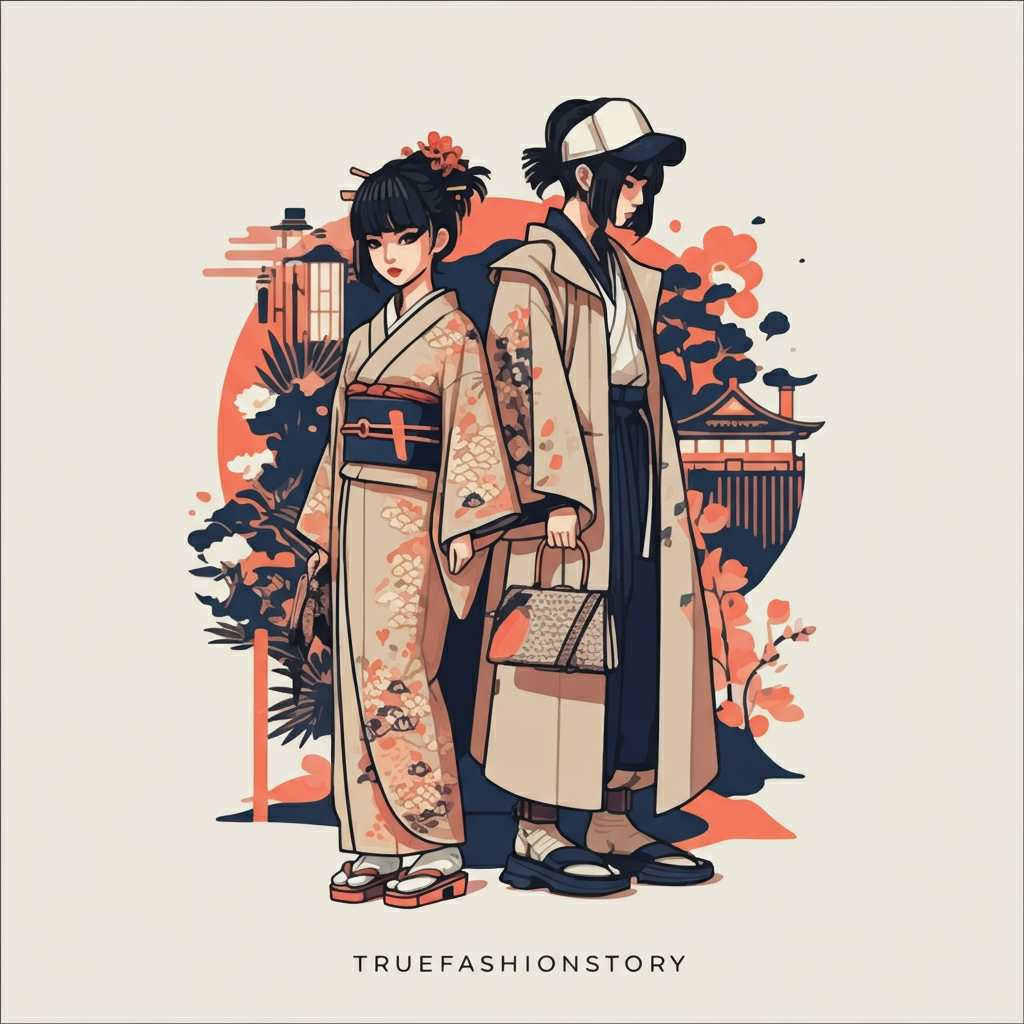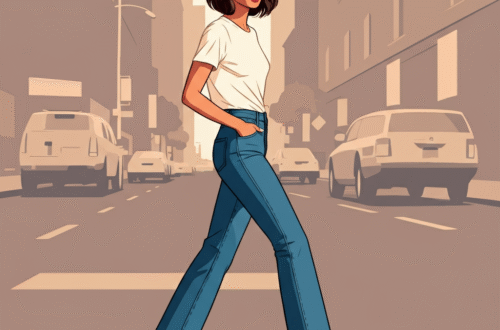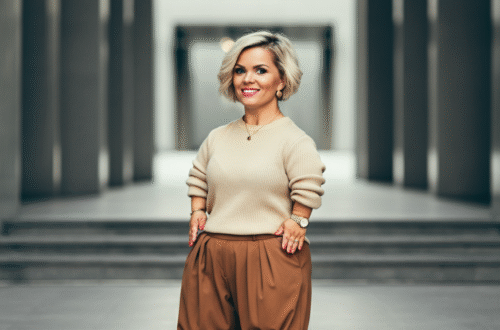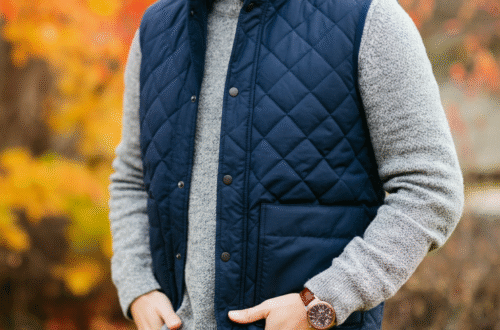Japanese fashion offers a captivating blend of minimalist elegance, avant-garde design, and meticulous craftsmanship. From globally recognized names to niche streetwear labels, Japanese fashion brands have made a significant impact on what we wear and how we think about clothing. This world is rich with history, innovation, and a unique cultural perspective that sets it apart. Whether you’re a seasoned fashion enthusiast or just starting to explore styles beyond mainstream Western trends, there’s a Japanese brand waiting to be discovered.
This guide will walk you through the diverse landscape of Japanese fashion. We will explore everything from luxury designers to accessible everyday wear, giving you a comprehensive look at the brands that define this exciting industry. Prepare to dive into the unique aesthetics, quality, and stories behind Japan’s most influential fashion labels.
Key Takeaways
- Japanese fashion is incredibly diverse, ranging from high-end avant-garde and minimalist styles to vibrant streetwear and casual wear.
- Many Japanese fashion brands are known for their exceptional quality, attention to detail, and use of innovative materials.
- Streetwear is a dominant force in Japanese fashion, with brands like BAPE and UNDERCOVER having a global impact.
- Minimalism, represented by brands like Muji and Uniqlo, focuses on simplicity, functionality, and high-quality basics for everyday life.
The Rise of Japanese Fashion on the Global Stage
In the latter half of the 20th century, a wave of Japanese designers took the international fashion world by storm. Figures like Rei Kawakubo of Comme des Garçons and Yohji Yamamoto challenged Western ideals of beauty and form. They introduced a new aesthetic characterized by deconstruction, asymmetry, and a predominantly black color palette. This movement was revolutionary, shifting the global fashion conversation and cementing Japan’s position as a powerhouse of creative design. These pioneers paved the way for future generations of designers, proving that Japanese fashion was a force of innovation and artistry. Their influence continues to be felt today, as new brands build upon this legacy of bold, boundary-pushing design. The unique approach to clothing as a form of art, rather than just commercial product, is a hallmark that many of the best Japanese fashion brands carry forward.
Must-Know Luxury and Avant-Garde Brands
The high-fashion scene in Japan is home to some of the most influential and thought-provoking designers in the world. These brands are known for pushing the boundaries of what clothing can be.
Comme des Garçons
Founded by the legendary Rei Kawakubo, Comme des Garçons is more than a fashion brand; it’s an artistic movement. The name translates to “like some boys,” and from its inception, it has challenged traditional gender norms and clothing silhouettes. Known for its avant-garde and deconstructed designs, Comme des Garçons consistently subverts expectations. The brand is famous for its conceptual collections that often prioritize artistic expression over wearability. Beyond its main runway line, the brand has a vast portfolio of diffusion lines, including the widely popular PLAY line, recognized by its iconic heart-with-eyes logo. This allows a broader audience to connect with the brand’s creative spirit.
Yohji Yamamoto
Yohji Yamamoto is a master of tailoring, drape, and silhouette. Since his Paris debut in the early 1980s, his work has been synonymous with an intellectual, anti-fashion stance. Yamamoto’s designs often feature oversized shapes, an abundance of black fabric, and an androgynous feel. He creates clothing that is both poetic and powerful, focusing on the space between the body and the fabric. His collaboration with Adidas, Y-3, successfully merged his avant-garde aesthetic with sportswear, creating a new category of high-fashion athletic wear that has been immensely influential. Yamamoto’s dedication to craftsmanship ensures that each piece is not just a garment but a timeless work of art.
Issey Miyake
Issey Miyake is a brand built on the foundation of technological innovation and textile development. The late founder was a visionary who famously explored the concept of “A-POC,” or “A Piece of Cloth,” creating garments from a single tube of fabric. The brand is perhaps best known for its Pleats Please line, which features permanently pleated garments that are lightweight, comfortable, and easy to care for. This technique revolutionized modern clothing by combining practicality with elegant design. The brand’s Bao Bao bag, with its tessellating geometric panels, is another iconic example of Miyake’s fusion of technology and fashion, creating a product that is both functional and visually striking.
The Powerhouse of Japanese Streetwear
Japanese streetwear has a unique flavor that has captivated a global audience. It’s a vibrant mix of American workwear, hip-hop culture, and distinctly Japanese aesthetics.
A Bathing Ape (BAPE)
Founded by Nigo in the vibrant Harajuku district in 1993, A Bathing Ape, or BAPE, is one of the most iconic Japanese fashion brands in the world. BAPE is famous for its bold graphics, including the iconic Ape Head logo and its signature “Cloud Camo” pattern. The brand’s limited-edition drops and exclusive collaborations created a hype culture that became a blueprint for streetwear brands globally. The full-zip shark hoodie is one of its most recognizable pieces, a status symbol for streetwear enthusiasts everywhere. BAPE’s influence extends far beyond clothing, with a presence in music, art, and culture that has cemented its legendary status.
UNDERCOVER
Helmed by designer Jun Takahashi, UNDERCOVER perfectly blends punk rock aesthetics with high-fashion sensibilities. The brand’s slogan, “We make noise, not clothes,” encapsulates its rebellious and artistic spirit. Takahashi’s collections are often dark, surreal, and deeply narrative, drawing inspiration from film, music, and art. While the designs can be complex and conceptual, they are also incredibly wearable. UNDERCOVER is respected for its intricate graphics, innovative fabric treatments, and expert tailoring. It occupies a unique space between streetwear and avant-garde fashion, earning a devoted following from those who appreciate its unique vision.
Neighborhood
Shinsuke Takizawa founded Neighborhood in 1994, drawing heavy inspiration from American counter-cultures, particularly the motorcycle scene. The brand is a cornerstone of the Ura-Harajuku movement and is known for its high-quality, rugged apparel. Neighborhood specializes in expertly crafted denim, leather jackets, and military-inspired garments. The attention to detail, from custom hardware to intricate washes and distressing on their jeans, is exceptional. It’s a brand for those who value durability and timeless style with a tough, rebellious edge. Neighborhood has maintained its authenticity for decades, making it one of the most respected names in Japanese streetwear.
Minimalist and Everyday Japanese Fashion Brands
Beyond the extremes of avant-garde and streetwear, Japan excels at producing high-quality, functional, and beautifully simple clothing for everyday life.
Uniqlo
Uniqlo has become a global giant by perfecting the art of high-quality basics. Its philosophy, “LifeWear,” is about creating simple, well-designed apparel that meets the needs of daily life. The brand focuses on innovation, developing signature fabrics like HEATTECH for warmth and AIRism for cool, breathable comfort. Uniqlo offers a clean, minimalist aesthetic with a focus on fit, fabric, and functionality over fleeting trends. Its collaborations with renowned designers like Jil Sander and Christophe Lemaire bring a touch of high fashion to its accessible price points. Uniqlo is the go-to for building a versatile, timeless wardrobe.
Muji
Muji, short for Mujirushi Ryōhin, translates to “no-brand quality goods.” This philosophy is at the core of everything they do. Muji’s clothing line is characterized by its simplicity, lack of visible logos, and focus on natural materials like organic cotton and linen. The designs are functional, comfortable, and designed to integrate seamlessly into any wardrobe. The color palette is typically neutral and calming, reflecting a minimalist lifestyle. Muji offers a complete vision of simple living, extending from clothing to home goods and stationery. For those who appreciate understated quality and a “less is more” approach, Muji is the perfect fit.
Beams
Beams is more of a cultural curator than just a clothing store. Starting as a small shop in Harajuku in 1976, it has grown into a major lifestyle retailer with several different lines. Beams Plus, for example, focuses on timeless American menswear from the “golden era” of the mid-20th century, reinterpreting classic styles with a Japanese attention to quality and fit. Other lines cater to women’s fashion, home goods, and contemporary design. Shopping at Beams is an experience of discovery, offering a carefully selected range of products from both its own labels and other brands from around the world. It’s a great place to understand the breadth of influences on modern Japanese style. As one article on truefashionstory.comBlog notes, a brand’s ability to curate a lifestyle is a powerful tool.
Comparing Key Japanese Fashion Brands
|
Brand |
Style |
Key Feature |
Price Point |
|---|---|---|---|
|
Comme des Garçons |
Avant-Garde |
Deconstructed, conceptual designs |
Luxury |
|
Yohji Yamamoto |
Avant-Garde |
Asymmetrical, oversized silhouettes |
Luxury |
|
BAPE |
Streetwear |
Bold graphics, signature camo |
High-End Streetwear |
|
UNDERCOVER |
Streetwear/Punk |
Artistic graphics, rebellious feel |
High-End Streetwear |
|
Uniqlo |
Minimalist/Basics |
“LifeWear,” innovative fabrics |
Accessible |
|
Muji |
Minimalist/Basics |
No-brand, natural materials |
Accessible |
Conclusion: Finding Your Place in Japanese Fashion
The world of Japanese fashion brands is vast and incredibly rewarding to explore. It offers something for everyone, whether you are drawn to the intellectual artistry of the avant-garde, the vibrant energy of streetwear, or the quiet confidence of minimalism. The common thread that runs through these diverse styles is an unwavering commitment to quality, detail, and intentional design.
As you begin your journey, start by identifying the styles that resonate most with you. Don’t be afraid to mix and match. Pair a high-quality Uniqlo basic with a statement piece from UNDERCOVER, or integrate a classic Beams Plus shirt into your everyday wardrobe. By exploring these brands, you are not just buying clothes; you are engaging with a rich culture of creativity and craftsmanship.
Frequently Asked Questions (FAQ)
Q1: Why are Japanese fashion brands so expensive?
A1: Many high-end and streetwear Japanese brands command high prices due to their exceptional craftsmanship, use of premium and often custom-developed materials, and limited production runs. The cost reflects a commitment to quality and durability over mass production. However, brands like Uniqlo and Muji offer excellent quality at accessible prices.
Q2: What is “Japanese sizing” like?
A2: Generally, Japanese sizing runs smaller and slimmer than US or European sizing. It is highly recommended to check the specific measurement charts provided by the brand before purchasing. For many brands, going one size up from your usual US size is a good starting point.
Q3: Where can I buy Japanese fashion brands in the USA?
A3: Many major Japanese brands have their own flagship stores in large US cities and official US websites. Additionally, high-end department stores like Nordstrom and Saks Fifth Avenue, as well as online retailers like SSENSE, Farfetch, and End Clothing, carry a wide selection of Japanese designers and streetwear labels.
Q4: What defines the Japanese streetwear style?
A4: Japanese streetwear is a unique blend of influences. It often includes elements of American workwear, military apparel, and skate culture, but reinterpreted with a Japanese focus on quality, detail, and sometimes playful or bold graphics. It is known for its layering, unique silhouettes, and emphasis on high-quality basics like denim and hoodies.
Q5: Are Japanese fashion brands sustainable?
A5: Sustainability practices vary by brand. Many Japanese brands inherently promote a more sustainable mindset by focusing on high-quality, durable clothing meant to last for years, which contrasts with the fast-fashion model. Brands like Muji emphasize organic and natural materials. However, like the global fashion industry, it’s an area with ongoing development, and it’s best to research the specific practices of each brand.





